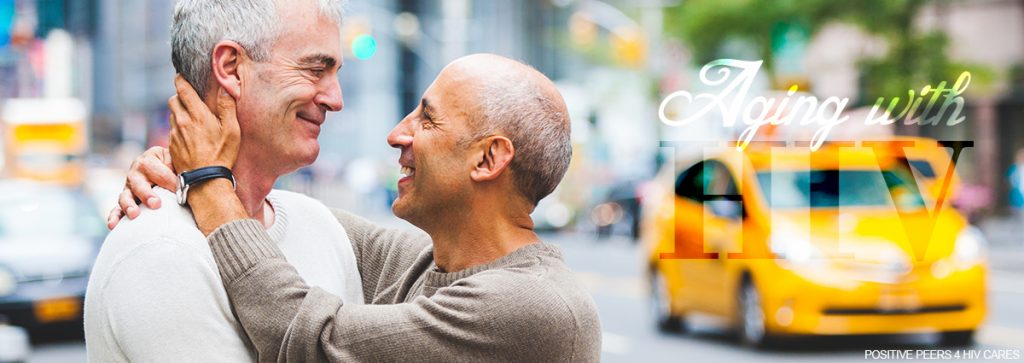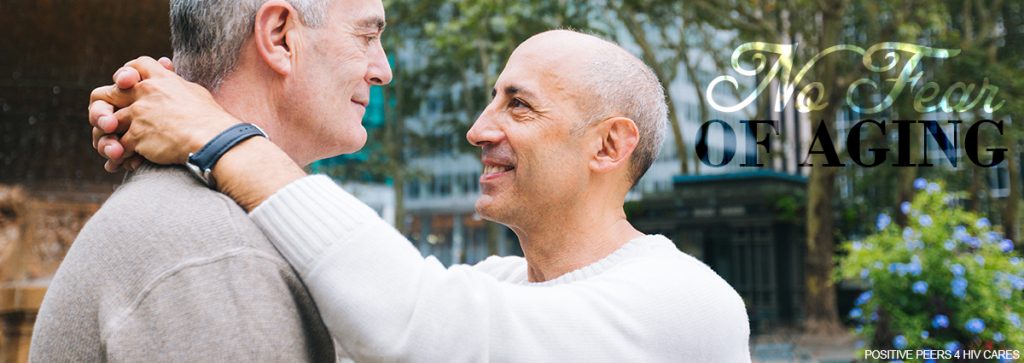
By: Ann K. Avery, MD, Infectious Disease Physician at MetroHealth Medical Center
If you’re rocking your HIV treatments, you have something people living with HIV didn’t have 30 years ago: A chance to grow old.
When the AIDS epidemic was spreading around the globe in the 1980s with no help in sight, many people died within two years of testing positive for HIV. Back then, they would’ve given anything for a shot at old age.
Most of them never had that chance. But luckily you do.
Today’s anti-retroviral medicines can help people survive well into retirement age. Nearly half of all Americans living with HIV are over age 50, for instance.
But there can be health issues. After all, fighting HIV takes a toll on the body, and everybody faces more health risks as they get older.

Health challenges when aging with HIV
These are some of the primary health challenges people living with HIV should be aware of:
Cardiovascular disease. Around 20% of people living with HIV die of cardiovascular disease, which weakens the heart and circulatory system. Eating healthy foods and getting lots of exercise can help slow the advance of cardiovascular disease.
Lung disease. Lung infections used to be one of the primary killers of people who were diagnosed with AIDS. That’s far less common today because if you’re taking your meds you’ll likely never be diagnosed with AIDS.
But many other diseases like lung cancer and chronic obstructive pulmonary disease (COPD) pose serious risks for people living with HIV. Smoking does the most damage to your lungs; cutting back or quitting is the best thing you can do for your breathing. Did you know, that after HIV med adherence, of course, quitting smoking is the second best thing you can do to extend your health and longevity (length of your life)?!
Cancer. People living with HIV are vulnerable to cancers, some of which are HIV-specific like Kaposi’s sarcoma, aggressive B-cell non-Hodgkin lymphoma, and cervical cancer. The National Cancer Institute says that when compared with the general population, people living with HIV are:
- 19 times more likely to be diagnosed with anal cancer
- 8 times more likely to be diagnosed with Hodgkin lymphoma
- 3 times as likely to be diagnosed with liver cancer
- Twice as likely to be diagnosed with lung cancer or oral cavity/pharynx cancer
Quitting smoking, getting treated for hepatitis, and reducing alcohol intake are among the best tactics for avoiding cancer.
Type 2 diabetes. Some HIV treatments increase the likelihood of developing type 2 diabetes. Doctors can measure your blood glucose levels to see if they point to a high risk of type 2 diabetes. If you’re at high risk, you may need to switch to a different medication.
HIV-associated neurocognitive disorders (HAND). About half the people living with HIV have conditions that affect the functioning of the brain. The experts at Poz.com say most people’s HAND symptoms are so mild they never even notice them. Still, it’s best to know that HIV can be related to conditions that affect your moods and thought patterns. Getting treated for depression and other mental health challenges can reduce the impact of HAND, Poz.com says.
Liver disease. Hepatitis B and C are found in a good amount of people living with HIV. You can take tests and certain medications to fight or even cure some kinds of hepatitis. See What You Need to Know about Hepatitis for more.
Come join our private, stigma-free, supportive community.
Health management tools with medication & appointment reminders.
Social networking in a community conversation & private chats.
Talk to your doctor about your health risks
Your doctor and staff at the HIV clinic can give you more details on the risks of diseases. For instance, HIV causes inflammation that can trigger other health problems. The meds that fight HIV also fight inflammation, so staying on your meds helps your overall health.

Make sure you’re still getting support
Getting older is trouble enough — your body parts don’t work as well as they used to. You tire out quicker than you used to and you may not have the buff body that made you look so hot when you were young.
For added support, remember that you can join age-specific HIV support groups full of people dealing with everything you’re going through. Don’t hesitate to take advantage of these opportunities.

No need to fear getting old
All this talk of diseases does not mean aging is something to fear. Rather, it’s something to grab onto. As long as you’re aging gracefully, you’re winning the battle against HIV. The road will get rough at times, of course, but that’s true for everybody.
If you take care of business — stay on your meds, eat right, and stay active — you can enjoy better days for all of your life, not just the last phase of it.
Related Blogs:


